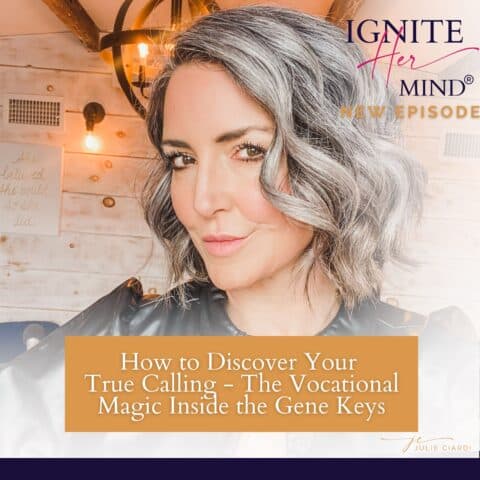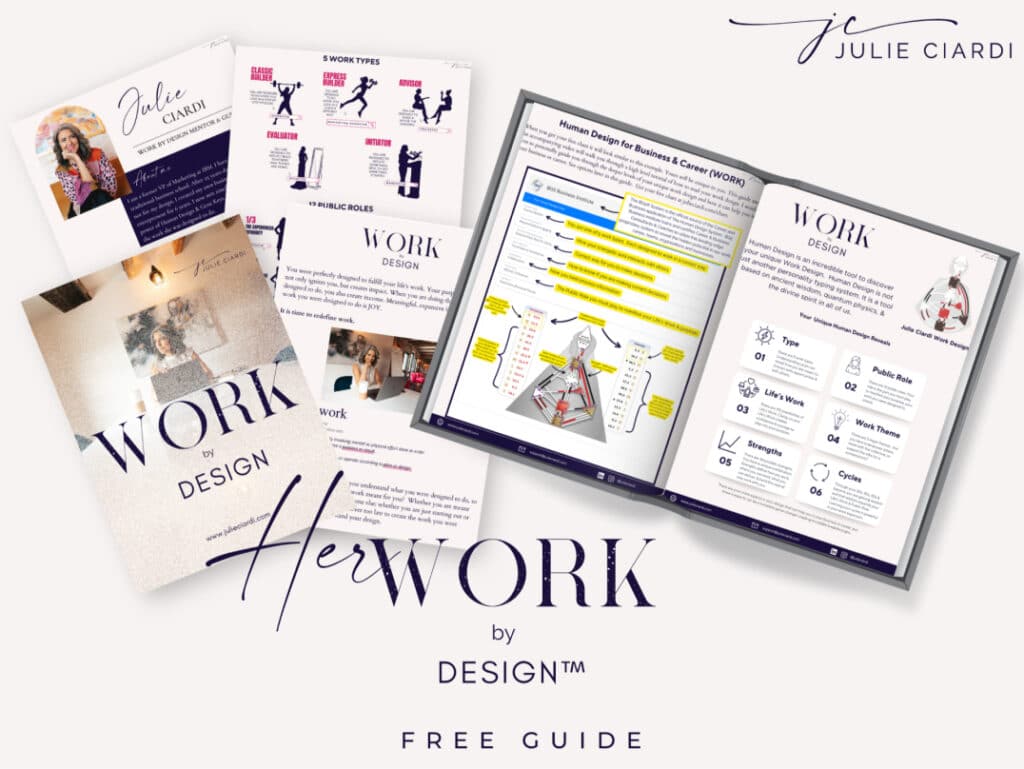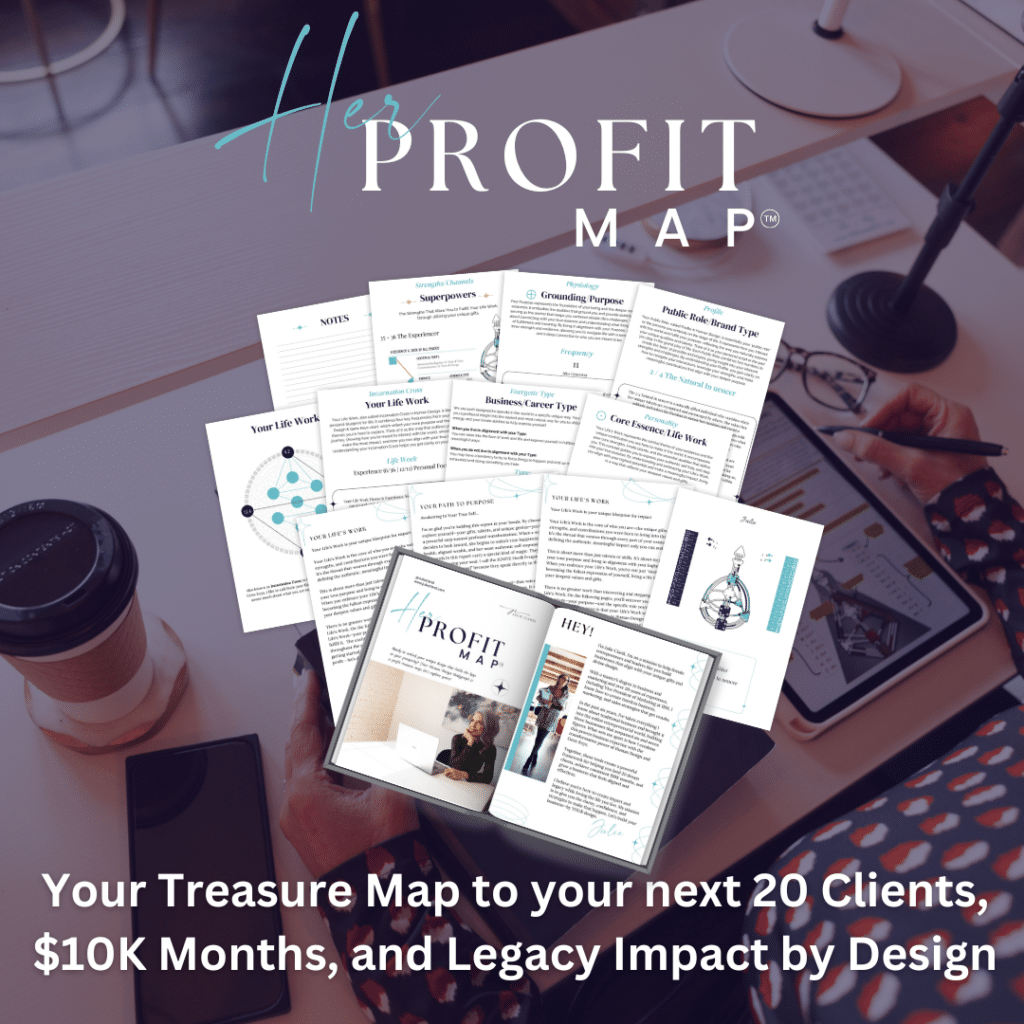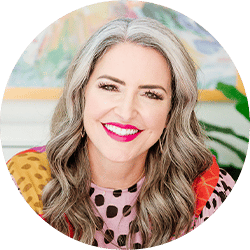I want to share something with you to show you the power of using a tool like the Gene Keys to uncover your true calling. There's a lot that we can do with the Gene Keys above and beyond your true calling, but I want to talk very specifically about that because it is absolutely mind bending what has transpired since I've been using the Gene Keys for myself. I wish I had known this information a long time ago because it would've saved me quite a few years, some tears, some trying to figure it all out.
Had I had the Gene Keys, the insights, and the intuitive downloads that have come from really understanding my own profile using the Gene Keys, I would've understood my vocation with a lot more clarity.
Listen to the Corresponding Podcast Episode:
What's a Calling?
Let's first talk about what a calling or a vocation even is. I heard it once from a Mystic, a teacher by the name of Caroline Myss. She was talking about something that just blew my mind. It resonated at the deepest level. She spoke about how that for so many of us, we go to school and we pick something up. Maybe you were told that you should be a doctor, a lawyer, a teacher, or whatever it may have been. Then we go through schooling based off those “shoulds” and get a job after college.
And that’s it. It’s just

a job. It’s something that we do to make money so that we can start to save money and live out on our own. For many, that job ultimately can turn into a career.Maybe it turns into a career in teaching, a career in law enforcement, a career in healthcare, a career in business, etc. That’s how a lot of people just spend their life until they retire.
Caroline Myss shares then that around age 35-40, we start to question our career from an angle of our calling. You start to wonder if you’re living your true calling, living your purpose. I know I did it heavily, and there's this tugging inside of you that you think, “okay, this is my career, but is this my vocation?” When I think about it, I really only know a few people in my life where their career is their vocation. My stepmother is one of them. She absolutely loves being a doctor, loves an anesthesiologist and loves the work that she does. It gives her so much joy. It’s not just a career. It is her vocation. It is her calling. But, for the majority of people that I know, including myself, when I was working in a career, it was not my vocation. It was not my calling. It was not the thing that was giving me joy and lighting me up. I knew in my bones, in my soul that it was not the thing I was actually born to do in this world.
I think a lot of us feel this way. You may feel this way. You may actually even like your career or your job, but feel like it's still not the thing you were called here to do. That's okay too. It doesn't have to be so dramatic. Mine was pretty dramatic. I loathed my career. I felt very trapped by it. You may not have as strong of feelings, but you just also know that you were made for something more. You just know it, but you're not sure what it is. That's where I was at. I just did not know what it was. During my 20 years at IBM, I can remember thinking, “what am I?” I wasn’t a lawyer, I wasn’t a doctor, I wasn’t a teacher or a nurse. I don’t know why, but at the time, I felt like I needed to have a label to describe what I was doing. It just was this gap for me. Like, “what am I, why am I here?” I was asking questions like:
- What is my purpose?
- What am I supposed to be doing in this world?
I Knew I was Meant for More
That was a narrative that was going on in my mind constantly. I was always on this fast track at IBM. I was part of their NextGen program of leaders in the company, always on the ist for getting mentors and promotions. I actually put myself there. I actively was pursuing and seeking achievement. I thought that if I was going to be in a career I didn't love, then I wanted to get to the top of that career. I was kind of in the bit of that rat race of achievement.
It afforded me the ability to be a part of some pretty cool things. I remember I was part of a Women in Leadership program that I got nominated for. I've gotten mentored by some pretty, pretty awesome people. I also got to go to some pretty cool courses and trainings. One particular training was all about leadership and becoming that next generation leader in the company. I was sitting in a fairly small room, and the next speaker was Lou Gerstner. Lou Gerstner was the CEO of IBM during the Nineties, during an incredibly volatile period in the computer and IT industry, but also in IBM itself. It almost split up into a bunch of different companies, and potentially could have gone out of business. It was a pretty volatile time. So, Lou was brought in to help the ship, if you will. At the time when he came to speak to us, he was no longer CEO of the company, he was just coming back to talk about leadership. I'll never forget what he said. He said, “I was CEO of Nabisco, I was CEO of American Express, and I was CEO of IBM.” He said, “Here's what I can tell you. I know nothing about crackers.” Being CEO of Nabisco, and he knows nothing about crackers and the food industry. He said, “I know nothing about financial services.” Which stems from when he was at American Express. He said, “and I definitely knew nothing about computers and technology.” Here he is becoming CEO of IBM. He said, “But here's what I know. I know people and I know how to lead people.” He said, “I'm a leader.”
It hit me like a ton of positive bricks! That's what I am. It was like my soul had awakened to ding, ding, ding, ding, ding, Julie, listen. That's what you are. You've been asking, what am I, what am I, what am I? You’re a leader! That resonated with me so much that I actually ended up very quickly having a pretty strong trajectory upwards from that point at IBM, ultimately becoming a vice president in IBM by the age of 39. It was because I started to actually see myself as a leader. That followed through when I started in network marketing while I was still at IBM. I was looking for something. I still didn't know what it was going to be. I didn't know what my calling was, what my vocation was, but I knew that I wanted to do something different. At the time, everyone I knew had a network marketing business, so I thought I would try it. It seemed like a low risk way to get into entrepreneurship. I think that business model is often a gateway for people.
I started in network marketing and here's what happened. I very, very, very quickly was successful. The reason had nothing to do with me knowing the products, and had nothing to do with me knowing how to do network marketing. At all. It was because I was a leader and being a leader is what I was identifying myself as. It was my identity. I became a leader and did very well, but I knew network marketing wasn't where I wanted to be.
The interesting thing is, when I went into my coaching business, I forgot about being a leader. That didn't rise up for me again until I was about two years into my coaching business trying to get it to work, trying to figure it out. It's when I stepped into leadership. Being a leader for women. I wasn’t just trying to be this person in the process of creating a coaching business, but actually stepping into that role of leader, that everything changed again. I haven't backed down from that role ever since.
Tying in the Gene Keys
Now, why am I sharing all this with you? Well, because I want to actually bring you back to the Gene Keys. As I I was doing the Gene Key work for myself, when I got to the Pearl Sequence, which is the Prosperity Path Sequence, I was in shock because guess what my vocation sphere was? My vocation inside of Gene Keys is the leader. Because again, had I known this before, it would've helped a lot, but wow, it absolutely just resonated at the deepest, deepest level. My vocation is being a leader. that was coming out with with breadcrumbs since the time that I heard Lou Gerstner speak all the way through my development as an entrepreneur and CEO and in Human Design.
In Gene Keys, it's Gene Key 31 that is the leader. In Human Design it's called Gate 31. This is a summary of what it says:
The gift of influence is actually a projection of leadership from others. It is your creative calling to lead through your communication. Your gift is that you recognize trends and patterns easily and have an inherent understanding of the masses and mastery of language that leads you to be able to communicate in a profound way, transcend the fear of what others think, and how you may be perceived, transcend the desire for power and control and money. In order to step into this role with truth and authenticity, your creative calling is to lead people out of the narrow neurolinguistic confines of their own conditioning.
I mean, come on. That is exactly what I'm doing! I'm sharing all of this with you because what would you do if you had deep understanding and knowledge of what your calling is? What if you had a paragraph like this that totally brought together with clarity what your calling is? That's what the Gene Keys can do. That's what I talked about in detail in a recent workshop that I hosted.
If I can help you to get to the clarity that I have with my vocation and my calling way earlier than I had through the use of the tools of the Gene Keys, all the better!


